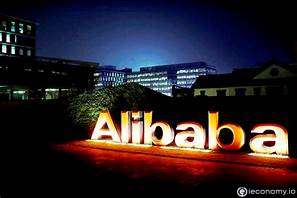6301
0
Has the Storm Passed for Alibaba?
Has the Storm Passed for Alibaba?

Yazar: Ross Sutton
Yayınlanma: 12 Mayıs 2021 16:39
Güncellenme: 3 Mart 2026 03:25
Has the Storm Passed for Alibaba?
Has the Storm Passed for Alibaba? The profit and revenue results of Chinese e-commerce giant Alibaba, which will announce its balance sheet on Thursday, seem to be overshadowed by concrete evidence of whether legal issues have been resolved. Accepting a record $ 2,8 billion fine by the Beijing government, Alibaba has pledged to change certain practices considered anti-competitive. Despite this, there are still a few fundamental issues that are not solved. Beijing is discussing how Alibaba will regulate data usage that underpins its competitive advantage. The company has lost nearly $ 260 billion in value since the end of October, when it hit a record high. Shares in Hong Kong surged as high as 4,4 % on Wednesday, and have cut losses since the fine was announced at around 1 %. Revenue for the March quarter is projected to increase 58 % to 180,4 billion yuan ($ 28 billion), but net income will be affected by the fines. Basic questions investors will ask:The uncertain future of the Ant
Alibaba owns a third of the Ant company at the center of Beijing's Fintech crackdown. This week's report will provide a look at how the fintech firm performed during the quarter ending December. Financial regulators ordered Ant to turn into a financial holding to be regulated like a bank, after the antitrust penalty imposed on Alibaba. According to Bloomberg Intelligence analyst Francis Chan, the value of the firm could drop from $ 320 billion to $ 29 billion.Data Horde
China's pressure on internet giants goes far beyond ending practices such as mandatory exclusivity deals and destructive pricing. Attempts by Alibaba and its colleagues to loosen their dominance over the vast chunks of data they have accumulated could have far-reaching consequences. In this context; The government is said to be exploring a series of models and actions to force companies to open data repositories. The government is investing in digital infrastructure to make China a leader in transforming the world economy in the coming years.Media and Deals
Like its competitors, Alibaba has previously carried out a series of mega mergers and acquisitions through its Variable Interest Entity Structure, which worked for shaky legal grounds. Afterwards, some fines were imposed on companies that have not requested antitrust permits since December. These regulations; It could hinder Alibaba's ability to buy competitors that threaten their dominance. Meanwhile, the Chinese government asked Alibaba to sell some of its media assets, including the South China Morning Post, amid growing concerns about the tech giant's influence on public opinion in the country.Moving On
For Alibaba, the $ 2,8 billion penalty was not as serious as many people feared. Following the fine, the company's Vice President, Joseph Tsai, made the following statement: "We are glad we left the matter behind. I don't know yet if there are any further investigations into our affairs." At present, the attention of the Beijing government has turned to its rivals. The government, which brought together 34 of the country's most influential technology companies, told them to learn from the Alibaba example. The companies that were asked to promise to comply with the regulations were given one month to correct their business practices. The given period ends this week. Other large monopoly firms are expected to face large penalties similar to Alibaba's. In its May report, UBS Global Wealth Management Chief Investment Office stated: "While the Alibaba's fines are at a record level, they can be managed for the company. In our view, it shows Beijing is looking for change."Source: finance.yahoo.com
You may also be interested in:
Pfizer Will Provide Another 100 Million Doses of Covid-19 Vaccine to Brazil!
İLGİLİ HABERLER





European stocks soared and focus shifted to German retail sales after Powell's speech!

Forex Signal For TRY/USD: Inflation Slowdown in November.

Forex Signal For GBP/USD: Bullish Trend Still Not Breaking While Recovery Continues.

Forex Signal For EUR/USD: Starry US Data Points to Higher Fed Increases.

Forex Signal For BTC/USD: Downside Continues as Bitcoin Recovery Moves Less.
En Popüler Haberler
Yorum Yap
Yorumlar
Henüz yorum yapan yok! İlk yorumu siz yapın...